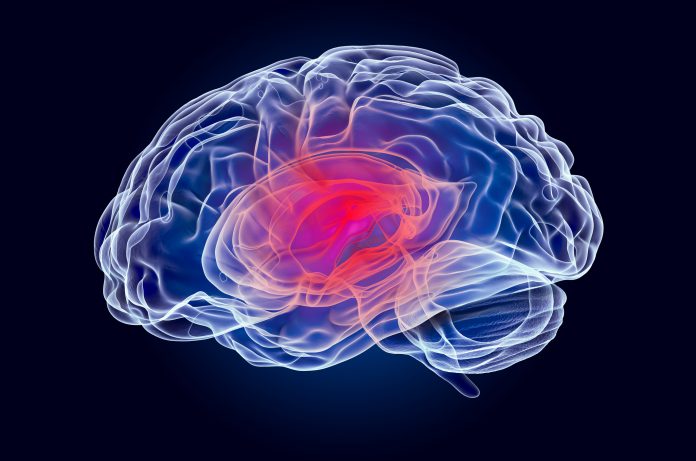
Researchers at the Mayo Clinic have discovered a connection between sleep apnea and brain biomarkers that have been linked to an increased risk of stroke, Alzheimer’s disease, and cognitive decline.
As many as 18 million Americans suffer from a lack of deep sleep caused by interruptions in their breathing pattern during the night—a condition known as sleep apnea. Common consequences include general tiredness and a lack of concentration during the day. Despite potentially serious implications for those suffering from the condition it remains poorly understood.
Reporting in Neurology, scientists have now conducted a study involving 140 individuals with obstructive sleep apnea in order to analyze the relationship between the disease and biomarkers of the health of the brain’s white matter. One of the biomarkers are tiny lesions visible on brain scans, known as white matter hyperintensities. The other biomarker measures the integrity of a type of nerve cells called axons.
“These biomarkers are sensitive signs of early cerebrovascular disease,” said Diego Carvalho, MD, member of the American Academy of Neurology and author of the study. “Finding that severe sleep apnea and a reduction in slow-wave sleep are associated with these biomarkers is important since there is no treatment for these changes in the brain, so we need to find ways to prevent them from happening or getting worse.”
For their study, the researchers examined how long participants spent in slow-wave sleep, also known as deep sleep—one of the best indicators of sleep quality. The results showed that for every 10-point decrease in the percentage of deep sleep, there was an increase in the amount of white matter hyperintensities as well as a decrease in axonal integrity.
Approximately one third of participants were classified as suffering from a severe case of the condition. Coincidentally these individuals appeared to have a higher volume of white matter hyperintensities than those with mild or moderate sleep apnea. Axonal integrity was also reduced.
Previous research published in the Journal of Clinical Sleep Medicine has linked severe cases of sleep apnea to an increased risk of cardiovascular disease such as coronary artery disease, congestive heart failure, and stroke.
“More research is needed to determine whether sleep issues affect these brain biomarkers or vice versa,” Carvalho said. “We also need to look at whether strategies to improve sleep quality or treatment of sleep apnea can affect the trajectory of these biomarkers.”
According to the researchers, a limitation of the study was that participant’s sleep was only observed for the first couple of hours until the criteria for sleep apnea were met. Afterwards an airway pressure machine was used for the remaining hours of sleep, so the measurements may not be representative of a full night’s sleep.











